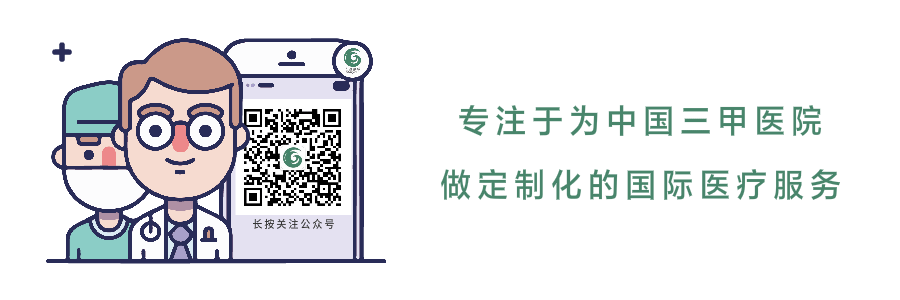-
News & Events

6月10日仁医医疗三人团队前往哥廷根大学医疗中心拜访德国国家科学院院士、德国癌症学会主席、哥廷根大学医疗中心普外科、脏器外科及小儿外科主任Ghadimi教授并与该科室两位核心科研负责人:转化研究负责人Schneider教授、数字外科中心负责人Hagenah教授进行了深入交流。会谈围绕博士培养、科研协作、临床访学合作等展开,持续一个半小时。Ghadimi 教授是德国外科领域的重量级人物。他自2012年起担任哥廷根大学医疗中心普外科、脏器外科及小儿外科主任。他连续两届当选德国癌症学会主席,并于2024年当选德国国家科学院院士。他致力于推动精准外科、国际协作与年轻医生的系统培养。2022年,他发起创立哥廷根外科学院,以提升年轻外科医生应对复杂手术挑战的能力;2023年,他推动落成数字手术中心,该中心聚焦人工智能、虚拟现实与机器人辅助手术的交叉研究,旨在推动外科的数字化转型。研究团队由临床医生、计算机科学家和生物医学工程师组成,聚焦两个核心问题:“何为优质手术”以及“如何将手术知识转化为临床价值”。他们开发深度学习算法以量化手术表现,设计自适应辅助系统,并将研究成果从实验室推向真实手术室。该中心以开源协作为理念,积极推动国际数据与方法共享,加速数字外科研究的全球进展。在他带领下,该科室形成了集肿瘤外科、机器人辅助手术、小儿外科、微创技术和移植外科于一体的高水平团队。该科临床重点覆盖胃肠系统肿瘤(食管、胃、小肠、胰腺、肝脏)、肥胖与代谢外科、软组织肉瘤、内分泌外科(甲状腺、甲状旁腺、肾上腺)及肾移植等领域。其中胰腺癌和结直肠癌治疗中心获得德国癌症学会认证,临床路径高度标准化,强调多学科协作与患者全程支持。科室是德国带头引入微创手术的单位之一,并逐步拓展至机器人辅助手术。交流前,Schneider教授带领我们参观了科室实验室,并介绍了科室实验室的基本情况。他同时向我们介绍医院大楼的布局概念:哥廷根大学医疗中心在整体架构上将门诊、住院、科研、行政等功能区域合理划分,同时保持相互联通,方便科研人员与临床医生高效协作。在会谈中,Ghadimi教授及其团队对仁医医疗的人才培养理念表现出浓厚兴趣。他表示,非常欢迎中国优秀的博士候选人加入团队,一道推动外科创新。他强调,跨文化的科研交流能够带来新的视角和动力,团队也愿意为每一位学生提供实质性的指导和发展空间。此次拜访为双方搭建了直接而深入的沟通平台,为下一阶段在博士培养、数字手术、肿瘤转化研究等方向的合作推进创造了良好基础。仁医医疗认为一个普通医生成长为优秀的医生必须品德高尚,有认知且有雄心。
On June 10th, the team of three from Gloryren visited Prof. Ghadimi, Director of the Clinic for General, Visceral and Pediatric Surgery of University Medical Center Göttingen, a Member of the German National Academy of Sciences Leopoldina.and President of the German Cancer Society (DKG). We had in-depth discussions with Prof. Ghadimi, and two leading researchers from his department: Prof. Schneider, Head of Translational Research, and Prof. Hagenah, Head of Center for Digital Surgery. The discussions centered on MD training, scientific research collaboration, clinical fellowship and so on, lasting one and a half hours. Prof. Ghadimi is a prominent figure in the field of surgery in Germany. Since 2012, he has served as the Director of the Clinic for General, Visceral and Pediatric Surgery at the University Medical Center Göttingen. He had been elected twice as President of the German Cancer Society (DKG) and became a Member of the German National Academy of Sciences Leopoldina in 2024. He is committed to advancing precision surgery, fostering international collaboration, and systematically training young surgeons. In 2022, he initiated the Göttingen School of Surgery for structured concept for surgical training. In 2023, he established the Center for Digital Surgery, which concentrates on interdisciplinary research aiming at levering Artificial Intelligence and Robotics to support the surgical team through assistance systems, real-time guidance or intelligent training.. The interdisciplinary research team of engineers, computer scientists and clinicians focuses on research evolves around two core questions: "When is a surgical procedure good" and "How can we make use of this knowledge to improve surgery?" They have developed deep learning algorithms to quantify surgical performance, designed adaptive assistance systems, and translated research outcomes from the laboratory into real operating rooms. Guided by the philosophy of open-source collaboration, the center actively promotes international data and method sharing to accelerate global progress in digital surgery research. Led by Prof. Ghadimi, the department has developed a high-level team integrating tumor surgery, robotic-assisted surgery, pediatric surgery, minimally invasive techniques, and transplant surgery. Its clinical expertise covers tumor surgery of the digestive organs (esophagus, stomach, intestines, pancreas, liver), obesity and metabolic surgery, soft tissue sarcomas, endocrine surgery, and kidney transplantation. Among them, the Pancreatic Cancer Center and Colon Cancer Center have been accredited by the German Cancer Society, featuring highly standardized clinical pathways that emphasize multidisciplinary collaboration and comprehensive patient support. It was also one of the first surgical clinics in Germany to introduce minimally invasive surgery, which has gradually expanded to include robot-assisted surgery. Before the meeting, Prof. Schneider gave us a tour of the department's laboratories and provided an overview of their research facilities. He also explained the architectural concept of the hospital building: The University Medical Center Göttingen employs a well-organized spatial design that clearly separates yet interconnects functional zones—including outpatient clinics, inpatient wards, research areas, and administrative offices—to facilitate seamless collaboration between researchers and clinicians. During the meeting, Prof. Ghadimi and his team expressed strong interest in Gloryren’s philosophy of talent training. He expressed that they warmly welcome outstanding Chinese MD candidates to join the team and jointly advance surgical innovation. He emphasized that cross-cultural research exchanges can bring new perspectives and impetus, and the team is committed to providing substantial guidance and development opportunities for every student. This visit has established a direct and in-depth communication platform for both sides, laying a solid foundation for advancing future collaboration in MD training, digital surgery, and translational research in oncology. Gloryren believes that for an ordinary doctor to grow into an outstanding one, they must possess noble ethics, sound judgment and insight, and great ambition.
